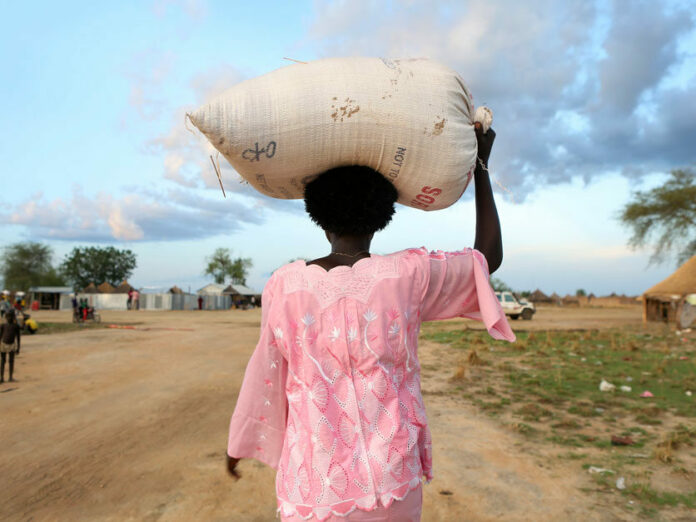Impact of Administration Cuts on USAID Food Aid
The recent actions taken by the Trump administration to significantly reduce the operational capacity of the U.S. Agency for International Development (USAID) have resulted in severe delays in food aid shipments. These cuts have not only hampered the timely delivery of essential assistance but have also compromised the oversight mechanisms critical for ensuring the effective and accountable use of humanitarian resources. According to a report from the USAID inspector general, the ramifications of these administrative changes pose substantial risks to food security for vulnerable populations.
Staff Reductions and Oversight Challenges
As highlighted in the inspector general’s report, approximately 90% of the personnel within USAID’s Bureau of Humanitarian Assistance have either been furloughed or placed on administrative leave. This drastic reduction in staff has undermined two vital oversight functions: partner vetting and third-party monitoring. These mechanisms are essential for maintaining accountability over humanitarian assistance funding, which is critical in ensuring that aid reaches its intended recipients without being wasted or diverted for other purposes.
Financial Risks to Food Assistance Programs
The report estimates that a staggering $489 million in food assistance is currently at risk due to these operational challenges. Approximately 500,000 metric tons of food, procured under the Food for Peace program, remain stranded at sea or are awaiting shipment to their intended destinations. The lack of clarity and direction regarding the humanitarian assistance waivers issued by Secretary of State Marco Rubio has left these commodities in a precarious state, vulnerable to spoilage and unanticipated storage costs.
Commodities in Limbo
In addition to the food stuck at sea, significant quantities of food aid are stored in pre-positioning warehouses around the globe. For instance, the report indicates that $39 million worth of commodities is currently held in Houston, while another $40 million is stored in Djibouti, East Africa. The implications of these logistical challenges are profound, as they not only delay the distribution of essential food aid but also jeopardize the quality and viability of the commodities.
Recent Developments in Food Aid Resumption
In light of these delays, Senator Jerry Moran (R-Kan.) reported that Secretary Rubio has taken steps to allow food aid shipments to resume. Rubio issued notices to aid organizations, clarifying that the commodities would be exempt from the suspension of foreign aid and the accompanying stop-work order. While this action is a positive development, the underlying issues stemming from staff reductions and lack of oversight remain critical concerns.
Operational Capacity and Future Implications
The inspector general’s report further emphasizes that the significant reduction of staff in the Bureau of Humanitarian Assistance, coupled with ambiguity regarding the scope of humanitarian assistance waivers, has severely affected USAID’s ability to disburse and protect its humanitarian assistance programming. The existing oversight controls, which had been identified as having shortcomings prior to these changes, are now largely rendered ineffective due to the recent directives and personnel actions.
Consequences for Third-Party Monitoring
USAID heavily relies on inspections conducted by third-party monitors to ensure that aid is delivered appropriately, particularly in regions where agency personnel cannot safely operate. However, the suspension of foreign assistance has led to the termination of third-party monitoring contracts, which is particularly concerning in high-risk environments such as Ukraine, Afghanistan, Ethiopia, Haiti, Gaza, Iraq, Lebanon, Somalia, Syria, and Venezuela. The absence of monitoring in these areas raises significant concerns about the accountability and efficacy of the humanitarian aid being provided.
Conclusion
The ongoing challenges faced by USAID due to administrative cuts and staff reductions have created a precarious situation for food aid programs. With millions of dollars in assistance at risk and substantial quantities of food stranded, it is imperative that effective oversight mechanisms are reinstated to ensure that humanitarian aid reaches those in need without delay or diversion. As the situation continues to evolve, stakeholders must remain vigilant and proactive in addressing these systemic issues to safeguard the integrity and effectiveness of U.S. humanitarian assistance efforts.
For more information and updates on this pressing issue, visit Agri-Pulse.com.




